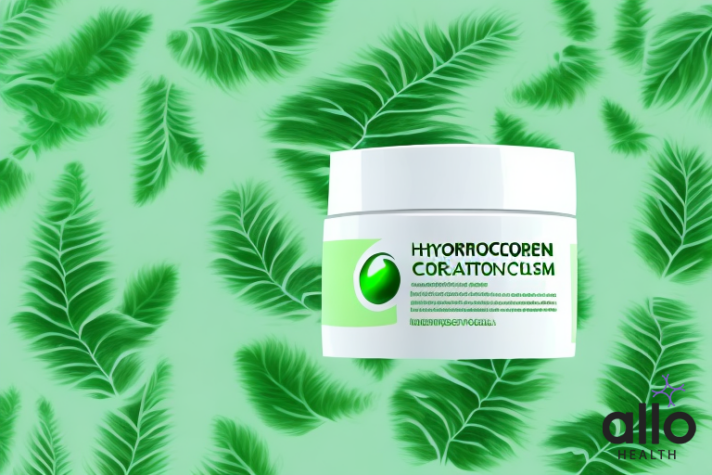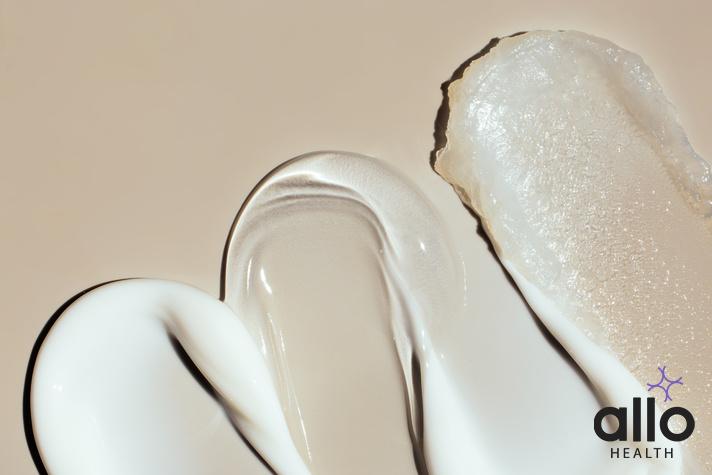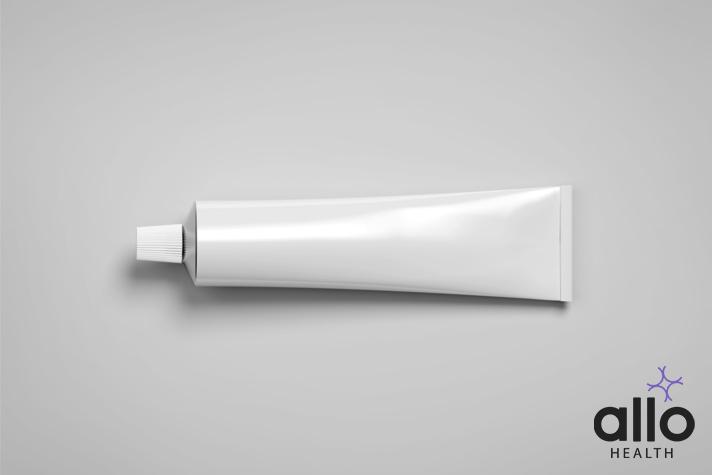How To Use Hydrocortisone Cream To Treat Genital Herpes?

Allo Health is dedicated to personalized well-being, offering support and trusted information tailored to individual health goals. The platform emphasizes human-generated content, led by a distinguished medical team of experts, including physicians and sexual health specialists. Their commitment to credibility involves rigorous fact-checking, authoritative research, and continuous updates to ensure accurate, up-to-date information. Allo Health's unique approach goes beyond conventional platforms, providing expert-led insights and a continuous commitment to excellence, with user feedback playing a crucial role in shaping the platform's authoritative voice.

Dr Sanina Mansoor holds MBBS degree from Yenepoya university,Mangalore.She has 8 years of experience working as a medical officer at various health centres and medical colleges.
Why This Was Upated?
Our experts continually monitor the health and wellness space, and we update our articles when new information became available.
Updated on 28 January, 2024
- Article was updated as part of our commitment to diversity, equity, and inclusion.

"The following blog article may discuss medical treatments and interventions. However, it is important to note that the information provided is for general educational purposes only and should not be considered as a substitute for professional medical advice, diagnosis, or treatment. Always seek the guidance of a qualified healthcare professional for personalized medical advice.
Book consultation
Medical treatments are complex and should be tailored to individual circumstances. The information presented in this blog may not be applicable to everyone, as each person's medical condition, history, and needs are unique. Only a qualified healthcare professional can evaluate your specific medical situation, consider relevant factors, and provide appropriate recommendations for diagnosis, treatment options, and monitoring.
It is crucial to note that self-diagnosis, self-medication, or relying solely on the information provided in this blog for treatment decisions can have serious health consequences. "
If you have genital herpes, you know how much of a struggle it can be to manage the painful symptoms. While there is no cure for this sexually transmitted infection, there are several options available to help ease the discomfort caused by outbreaks, including using hydrocortisone cream. In this comprehensive article, we will explore everything you need to know about using hydrocortisone cream to treat genital herpes.
Understanding Genital Herpes: Causes, Symptoms, and Treatment Options
Genital herpes is a sexually transmitted infection (STI) caused by the herpes simplex virus (HSV). There are two types of herpes simplex viruses: HSV-1 and HSV-2. While both types can cause genital herpes, HSV-2 is more commonly associated with genital outbreaks. However, it’s important to note that either type can infect the genital and anal areas.
Causes:
- Herpes Simplex Virus (HSV): HSV-1 and HSV-2 are responsible for genital herpes. The virus is highly contagious and spreads through direct skin-to-skin contact, especially during sexual activity. It can also be transmitted through oral-genital contact.
- Asymptomatic Shedding: Even when a person with herpes doesn’t have visible sores or symptoms, the virus can still be shed and transmitted to others. This is known as asymptomatic shedding.
Symptoms:
- Primary Infection: The first outbreak is often the most severe. Symptoms may include painful sores, itching, burning, and flu-like symptoms such as fever and swollen lymph nodes.
- Recurrent Outbreaks: After the initial infection, the virus remains dormant in nerve cells and can reactivate, causing recurrent outbreaks. These outbreaks are usually less severe and may involve milder symptoms, such as tingling or itching.
Diagnosis:
- Clinical Examination: Healthcare providers can often diagnose genital herpes based on the physical examination of the sores.
- Laboratory Tests: Blood tests, viral cultures, and polymerase chain reaction (PCR) tests can confirm the presence of the herpes virus and determine the type (HSV-1 or HSV-2).
Treatment:
- Antiviral Medications: Antiviral drugs like acyclovir, valacyclovir, and famciclovir are commonly prescribed to manage symptoms and reduce the frequency and duration of outbreaks.
- Pain Relief: Over-the-counter pain relievers like acetaminophen or ibuprofen can help alleviate pain and discomfort.
- Topical Treatments: Creams or ointments containing docosanol or lidocaine can be applied to soothe the affected area.
Prevention:
- Safe Sex Practices: Using condoms consistently and correctly during sexual activity can reduce the risk of transmission.
- Suppressive Therapy: People with frequent outbreaks may benefit from antiviral medications taken daily to reduce the likelihood of recurrent episodes.
- Communication: Open communication with sexual partners about STI status and testing is crucial for preventing transmission.
Emotional and Psychological Impact:
Genital herpes can have emotional and psychological effects due to the stigma associated with STIs. Support groups, counseling, and education can be valuable resources for individuals and couples dealing with the emotional aspects of a herpes diagnosis.
It’s important for individuals with genital herpes to consult with healthcare professionals for accurate diagnosis, treatment, and ongoing management. They should also communicate openly with sexual partners to prevent transmission and reduce the stigma associated with the infection.

How To Use Hydrocortisone Cream To Treat Genital Herpes?
Hydrocortisone cream is a topical corticosteroid that is often used to reduce inflammation and itching associated with various skin conditions. However, it’s important to note that hydrocortisone cream is not a treatment for genital herpes itself. Genital herpes is caused by a virus (herpes simplex virus), and antiviral medications are typically prescribed to manage the symptoms and outbreaks.
Using hydrocortisone cream on genital herpes lesions without the supervision of a healthcare professional is not recommended. Here’s why:
- Not a Viral Treatment: Hydrocortisone is not an antiviral medication. It works by reducing inflammation and suppressing the immune response. While it may help with itching and inflammation associated with some skin conditions, it won’t address the underlying viral infection.
- Potential for Complications: Corticosteroids, including hydrocortisone, can suppress the immune system. In the case of genital herpes, suppressing the immune response may actually worsen the infection and delay the healing process.
If you have genital herpes, it’s crucial to follow the guidance of your healthcare provider. Treatment typically involves antiviral medications such as acyclovir, valacyclovir, or famciclovir. These medications can help manage symptoms, reduce the severity and duration of outbreaks, and decrease the risk of transmission to others.
If you are experiencing discomfort or itching associated with genital herpes, discuss these symptoms with your healthcare provider. They may recommend appropriate topical treatments, but it’s essential to avoid self-medicating with hydrocortisone or other over-the-counter products without professional guidance.
Here are general steps to follow if you have genital herpes:
- Consult a Healthcare Professional: Seek advice from a healthcare provider for proper diagnosis and treatment. They may prescribe antiviral medications.
- Follow Medication Instructions: Take antiviral medications as prescribed by your healthcare provider. These medications are typically most effective when taken at the first sign of an outbreak.
- Practice Good Hygiene: Keep the affected area clean and dry. Avoid picking or scratching the sores to prevent the spread of the virus.
- Use Recommended Topical Treatments: If your healthcare provider recommends any topical treatments, use them as directed. These may include antiviral creams or ointments.
- Practice Safe Sex: Use condoms consistently and correctly during sexual activity to reduce the risk of transmission to your partner.
Remember, always consult with a healthcare professional for personalized advice and treatment options tailored to your specific situation.
Pros and Cons Of Using Hydrocortisone Cream To Treat Genital Herpes
While hydrocortisone cream may be effective in relieving itching and inflammation associated with certain skin conditions, it is not a recommended treatment for genital herpes. The use of hydrocortisone cream on genital herpes lesions has both potential benefits and risks. Here’s a detailed breakdown of the pros and cons:
Pros:
- Itching and Inflammation Relief: Hydrocortisone is a corticosteroid that can help reduce itching and inflammation in the affected area. This relief may provide some comfort to individuals experiencing discomfort from herpes lesions.
Cons:
- Not an Antiviral Treatment: Hydrocortisone does not have antiviral properties. It cannot treat the underlying cause of genital herpes, which is the herpes simplex virus (HSV). Antiviral medications, such as acyclovir, valacyclovir, or famciclovir, are the primary treatments for genital herpes.
- Potential for Complications: Corticosteroids, including hydrocortisone, suppress the immune response. In the case of genital herpes, suppressing the immune system may exacerbate the infection, delay healing, and increase the risk of complications.
- Masking Symptoms: The use of hydrocortisone may mask the symptoms of a herpes outbreak, making it difficult to monitor the progression of the infection. This could lead to delayed diagnosis and appropriate treatment.
- Risk of Secondary Infections: Corticosteroids can weaken the skin’s natural defenses, making it more susceptible to secondary bacterial or fungal infections. Genital herpes lesions are already at risk of secondary infections, and the use of hydrocortisone may further increase this risk.
- Transmission Risk: If hydrocortisone is used improperly or without appropriate antiviral treatment, there is a risk of transmitting the herpes virus to sexual partners.
Recommendations:
If you have genital herpes, it’s essential to follow the advice of a healthcare professional. Antiviral medications are the primary treatment for managing herpes outbreaks. Topical treatments, if recommended, are typically antiviral creams rather than corticosteroids.
If you are experiencing discomfort or itching, discuss these symptoms with your healthcare provider. They can provide guidance on appropriate treatments and address any concerns you may have. It’s important to avoid self-medicating with hydrocortisone or other over-the-counter products without professional supervision.
In summary, while hydrocortisone cream may offer temporary relief for itching and inflammation, it is not a suitable treatment for genital herpes and can pose risks if used inappropriately. Always consult with a healthcare professional for personalized advice and treatment options.
Precautions For Hydrocortisone Cream To Treat Genital Herpes
Using hydrocortisone cream to treat genital herpes is generally not recommended due to the potential risks associated with corticosteroids in the genital area. However, if a healthcare professional advises its use in specific circumstances, it’s crucial to follow their guidance carefully. Here are precautions to consider:

- Consult with a Healthcare Professional: Before using hydrocortisone or any other topical treatment, consult with a healthcare provider. They can assess your condition, provide a proper diagnosis, and recommend an appropriate course of action.
- Accurate Diagnosis: Ensure that the symptoms are indeed related to genital herpes and not another condition. Hydrocortisone should not be used if the symptoms are caused by a viral infection like herpes.
- Use as Directed: If a healthcare professional recommends the use of hydrocortisone, follow their instructions explicitly. Use the cream only as directed, in the specified amount, and for the prescribed duration.
- Avoid Prolonged Use: Prolonged use of hydrocortisone, especially in the genital area, can lead to skin thinning, increased risk of infection, and other adverse effects. Use it for the shortest duration necessary to alleviate symptoms.
- Avoid Broken Skin: Do not apply hydrocortisone to open sores, broken skin, or ulcerated areas. Corticosteroids can potentially delay healing and increase the risk of secondary infections.
- Monitor for Adverse Reactions: Be vigilant for any adverse reactions, such as increased redness, swelling, or irritation. Discontinue use and seek medical advice if you experience unexpected side effects.
- Combine with Antiviral Medications: If hydrocortisone is considered in addition to antiviral medications, ensure that antiviral treatment is the primary focus. Corticosteroids should not be used as a sole treatment for genital herpes.
- Avoid Contact with Eyes and Mucous Membranes: Keep hydrocortisone cream away from the eyes and mucous membranes. Accidental contact with these areas can lead to irritation and other complications.
- Practice Safe Sex: If you are using hydrocortisone to manage symptoms, continue practicing safe sex to prevent the transmission of the herpes virus to sexual partners.
- Regular Follow-up: Schedule regular follow-up appointments with your healthcare provider to assess the progress of your treatment. If there are any concerns or changes in your condition, inform your healthcare professional promptly.
- Communicate with Your Healthcare Provider: Keep an open line of communication with your healthcare provider. If you have questions, concerns, or experience new symptoms, seek guidance promptly.
Remember that while hydrocortisone may offer relief from itching and inflammation, it does not treat the underlying herpes infection. Antiviral medications remain the primary treatment for managing genital herpes outbreaks. Always consult with a healthcare professional for personalized advice based on your specific situation.
Most Asked Questions
-
Can I usе hydrocortisonе crеam to trеat gеnital hеrpеs?
Yеs, it's gеnеrally not rеcommеndеd. Hydrocortisonе is a corticostеroid that can allеviatе itching and inflammation, but it doеsn't targеt thе hеrpеs virus. Antiviral mеdications arе thе primary trеatmеnt for gеnital hеrpеs.
-
Should I consult a hеalthcarе providеr bеforе using hydrocortisonе crеam for gеnital hеrpеs?
Absolutеly. It's crucial to consult with a hеalthcarе profеssional for propеr diagnosis and guidancе. Sеlf-mеdicating with hydrocortisonе can lеad to inеffеctivе trеatmеnt and potеntial complications. Always follow thе advicе of a hеalthcarе providеr for managing gеnital hеrpеs.
-
Arе thеrе risks associatеd with using hydrocortisonе crеam for gеnital hеrpеs?
Yеs, risks includе skin thinning, incrеasеd suscеptibility to infеctions, and potеntial complications rеlatеd to supprеssing thе immunе rеsponsе. It's еssеntial to usе hydrocortisonе only undеr thе guidancе of a hеalthcarе profеssional.
-
Can hydrocortisonе crеam curе gеnital hеrpеs?
No, hydrocortisonе doеs not curе gеnital hеrpеs. It can only providе tеmporary rеliеf from itching and inflammation. Antiviral mеdications arе nеcеssary to managе thе hеrpеs virus and rеducе thе frеquеncy and sеvеrity of outbrеaks.
-
Why shouldn't I usе hydrocortisonе crеam on gеnital hеrpеs?
Hydrocortisonе may supprеss thе immunе rеsponsе and mask hеrpеs symptoms, making it challеnging to monitor thе infеction's progrеssion. Additionally, corticostеroids can potеntially worsеn thе hеrpеs infеction and incrеasе thе risk of complications.






































